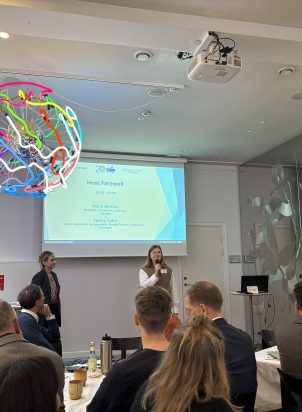The 2018 edition of the Nordic Economic Policy Review analyses the growing income inequality in the Nordics and has been edited by two Swedish Professors of Economics: Lars Calmfors and Jesper Roine.
The review was launched on 18 April at the Ministry of Finance in Stockholm and opened with an introduction by Kjell Nilsson, Director of Nordregio, followed by an introduction by the Swedish Minister of Finance, Magdalena Andersson.
Three of the articles from the review were presented and the launch finished with a panel discussion with Karl Petter Thorwaldsson, Karolina Ekholm (State Secretary) and Carola Lemne.
Income distribution issues have gained more and more attention in the last years in all economically advanced countries and this holds for both the public debate and academic research. This interest reflects an international trend towards increased income inequality, a trend which has also affected the Nordic countries long associated with far-reaching egalitarian ambitions. Since increases in inequality in the Nordics have been very pronounced, these developments have attracted attention internationally.
The articles in the review deal with different aspects of income inequality in Denmark, Finland, Norway and Sweden. Among the issues discussed are:
• Less redistribution through tax and transfer systems than in the past.
• How demographic factors – an ageing population and more single households. have contributed to larger income inequality.
• Substantial increases in the share of incomes going the very top of income earners.
• Gender inequality and its contribution to overall income inequality.
• The role of public consumption in reducing inequality.
Lars Calmfors stressed “that policy responses to increased income inequality should depend on how it is viewed: Is it an adjustment to excessive income compression in the 1970’s and 1980’s? Or is it a threat to the Nordic model jeopardizing desirable equity”. In the latter case one may according to Calmfors, “have to consider reforms of tax and transfer systems with more cash transfers to low-income earners and higher taxation of capital, although it is a contentious issue how equity objectives should be traded off against efficiency motives”.
The review can be downloaded here: http://norden.diva-portal.org/smash/record.jsf?pid=diva2%3A1198429&dswid=-4183
The next issue will tackle different perspectives of climate policies and the first seminar will take place in October 2018.




